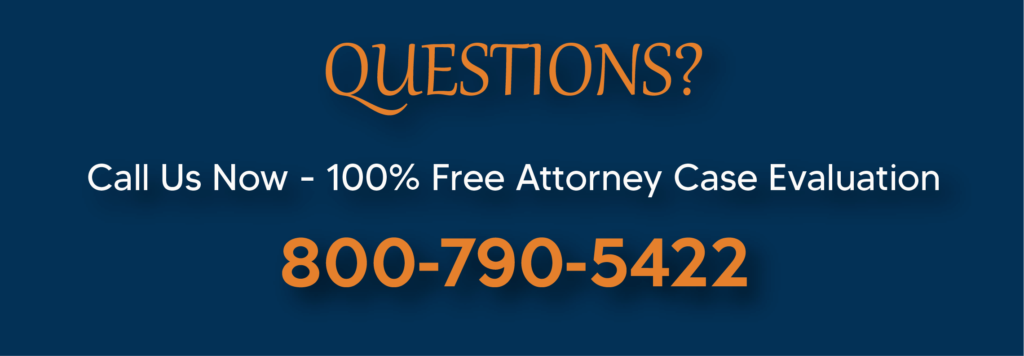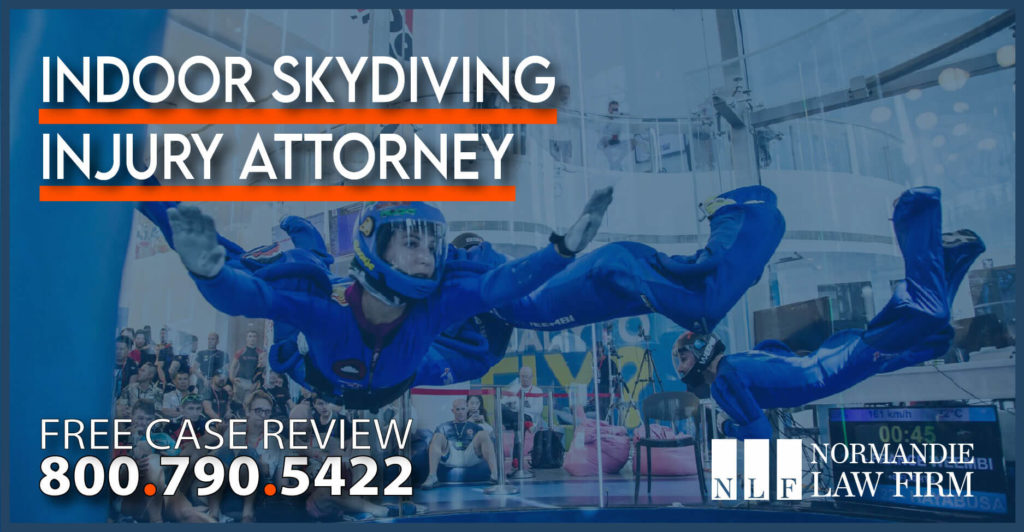What Is Indoor Skydiving?
Indoor skydiving is performed in a vertical wind tunnel, that moves air upwards in a column to allow people to experience the feeling of simulated skydiving indoors. Of all the times we have said it, you will need to definitely put on your Physics Professor hat for this one, as we explain how this works and what are the safety issues related to indoor skydiving.
How Does Indoor Skydiving Work?
People who jump out of planes and go skydiving have a rush of adrenaline in that extreme sport. They feel the wind in their ears, hear the quiet stillness of skydiving, and feel the weightlessness of flying and floating through the air. People who skydive jump from a plane, pull the rip cord, and then float gently back to earth safely during their skydiving jump. An indoor skydiving wind tunnel allows you to have the exact same experience of floating in the air and skydiving – except that you will be safely inside the wind tunnel, never needing to use a parachute to jump from a plane in the air.
Our Recent Verdicts and Settlements
$500,000
$599,000
$1.5 Million
$600,000
$525,000
$250,000
How Does the Wind Tunnel Work in Indoor Skydiving?
The wind tunnel is tall and has two skill levels for indoor skydiving participants. The area closest to the ground is for beginning flyers. This area measures around 6-7 feet off the ground. There is a safety netting under the indoor skydiving participant, to break the fall if for any reason the equipment fails. The participants wear protective gear, such as:
- Jumpsuit
- Goggles
- Helmet
- Eye protection
- Ear plugs
If you are injured in an indoor skydiving facility, you need to call us immediately at the Normandie Law Firm.
What Are the Dangers of Indoor Skydiving?
For the first time that people participate in indoor skydiving, they need to be given instructions by the owners, operators and staff at the facility on what to do and how to stay safe in the wind tunnel. The participants need to know how to put their body positions in the wind tunnel, and how to enter and exit safely from the wind tunnel. While in the wind tunnel, the participants can use some maneuvers that skydivers use in the air, such as:
- Flips
- Spins
- Turning around
- Neutral
- Forwards
- Backwards
- Turning 360 degrees
- Up slow fall
- Down fast fall
- Side slide
- Barrel roll belly to back
- Barrel roll back to belly
- Barrel roll belly to belly
- Barrel roll back-to-back
- Stand to back
- Back to stand
- Front layout
- Combination moves
People who are new to the indoor skydiving should not be attempting to do any of these advanced maneuvers on their first try.
What Can Go Wrong at the Indoor Skydiving Facility and the Waivers You Sign to Go in It
People who go indoor skydiving will also have to fill out a waiver as a matter of course, to be able to be allowed to use the facility. The waiver is a way for the indoor skydiving owners, operators and staff to reduce their liability for you in the wind tunnel. But they are still responsible for your safety when you are participating in the sport of indoor skydiving.
Anything can go wrong during a session of indoor skydiving, and this is a literal statement! Here are some issues that can occur during an indoor skydiving session, including:
- Wear and tear on the gear
- Variances in tunnel wind strength
- Wind tunnel malfunctions
- Open suit creates too much drift upwards
- Gear out of date or defective
- Unfastened chin straps causing helmet to fly off and injure participant
- Shoe laces come off during session causing injuries
- Shoes come off during session causing lacerations
- Participants can’t understand verbal commands during sessions to stay safe
- Hand signals not performed properly to keep people safe during sessions
- Broken fingers or thumbs during session because of wind speeds
- Improperly set wind speeds
- No spotter in the door
- Net defective to catch indoor skydivers during falling accident
The typical injuries associated with indoor skydiving include:
- Broken back
- Concussion
- Traumatic brain injury
- Broken fingers
- Foreign objects in eyes
- Lacerations
- Spinal injuries
- Banged up knees
- Broken hip
- Sprains and strains
- Broken foot
If you have suffered a serious personal injury from going to an indoor skydiving facility, then you need to call us today. We can review your claim, go over your case, and give you the best legal advice on what to do to recover a full recovery compensation package for your personal injuries.
What Safety Procedures Do Indoor Skydiving Companies Need to Perform Every Day?
The tunnel safety industry needs to invest time, money and training into all instructors and staff, to ensure the safety of all of the indoor skydiving participants. The owners and operators of indoor skydiving have to hold weekly safety meetings, and meet all industry standards for the operation of an indoor wind tunnel for indoor skydiving offered to the public.
Who Is Responsible If I Am Injured Doing Indoor Skydiving?
The owners and operators of the indoor skydiving facility are there to ensure the safety of all participants. These individuals are responsible to ensure that everyone participating in the sport of indoor skydiving are doing it as safely as possible. Some people should not do indoor skydiving, no matter how badly they want to participate in it. These people include people who:
- Have heart trouble or a history of heart attacks
- Have back issues or back spinal fusions
- Have shoulder dislocations
- Are pregnant
- Are over 300 pounds in weight
- Have other serious health concerns
In the event that you are injured at an indoor skydiving facility, you don’t have to suffer on your own. The owners, operators, staff, instructors and guides at the facility are responsible to ensure that your participation in their indoor skydiving facility operations is as safe as possible. They are responsible for your overall safety from the time you step into the center, until the time you leave the parking lot to go home. If you are injured, it is their negligence that will be up for questioning, and that is something that they have to deal with in a lawsuit. You can count on us to give you all of your options when you call us today, at the Normandie Law Firm.

“Help, I Was Seriously Hurt Indoor Skydiving, What Do I Do Now?”
Don’t worry, we get it. If you are injured in an indoor skydiving accident, you can give us a call to discuss your case at the Normandie Law Firm today. You need to talk to an attorney with expertise in serious personal injuries from an
Zero Fee Guarantee
You are entitled to a zero-fee guarantee, when you call us at the Normandie Law Firm. We can go over any questions that you may have regarding your case today, when you give us a call this afternoon.
Free Second Opinion
It’s easy to get a free second opinion, from our attorneys at the Normandie Law Firm who specialize in personal injuries from indoor skydiving activities. If you have been injured by going to an indoor skydiving facility, you can call our experienced attorneys in Los Angeles at the Normandie Law Firm to discuss your case today. Call now.
Can I Sue for Serious Injuries from Indoor Skydiving?
Yes, we can sue when you have suffered serious injuries from participating in an indoor skydiving session. You can feel comfortable to call us and talk about your case with our Los Angeles case lawyers. We are here for you, and can file a lawsuit on your behalf. Just call the Normandie Law Firm to discuss your case with confidence, and talk to our case attorneys in Los Angeles today.
Call for a Free Consultation
If you are injured participating in indoor skydiving, you may have suffered serious injuries. In that case, you need to talk to an attorney about what you can do to get the help you need on your medical bills. You can call the Normandie Law Firm now for a free consultation. You really have nothing to lose by making the call, and we are here for your call whenever you need us.












